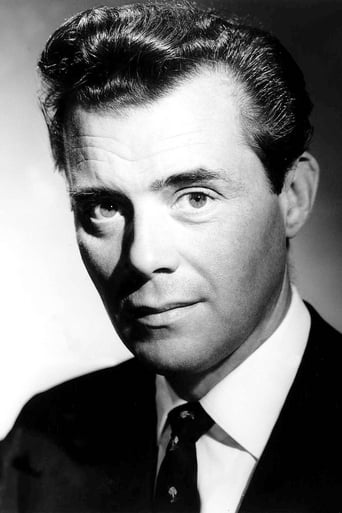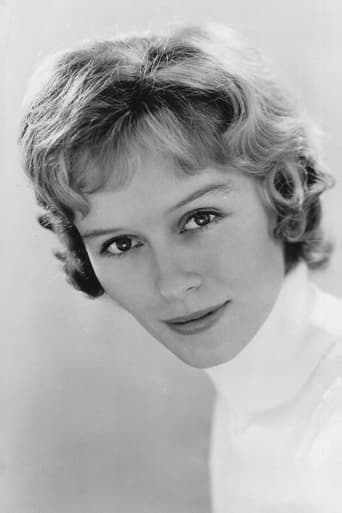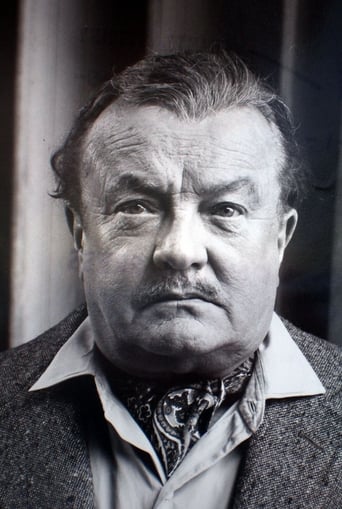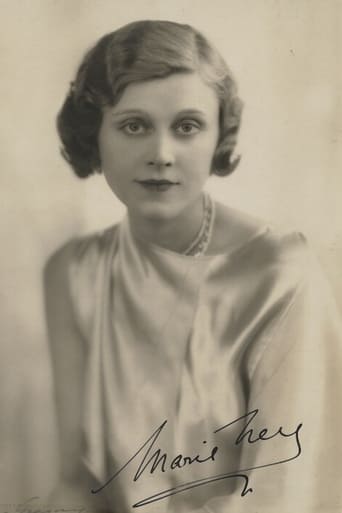Redwarmin
This movie is the proof that the world is becoming a sick and dumb place
SpuffyWeb
Sadly Over-hyped
Edison Witt
The first must-see film of the year.
Lucia Ayala
It's simply great fun, a winsome film and an occasionally over-the-top luxury fantasy that never flags.
michael_a_manor
I don't intend to review the film in its entirety, but rather discuss its treatment of race relations. There is little doubt that it was transgressive by the standards of its time, and, also, it was incredibly raw and often offensive in terms of rank racism, but it was also refreshingly honest and unvarnished. We saw the ugliness for what it was on all sides. We saw the complication. We saw how truly decent people could hold a variety of view and then change them for the better. Most importantly,we saw humanity. I don't think we can achieve that by sanitizing and political correctness. I am grateful that this film is available for viewing and consideration. Just the notion of an accomplished black doctor standing up to a white man in such an astonishing way circa 1955 was amazing. We didn't see anything like it until Sydney Poitier uttered his famous line, "They call me Mr. Tibbs."
bkoganbing
One of my biggest complaints about American cinema films concerning Africa is that they are complete pulp fiction and give us no real understanding of the continent. How could it since we have no real ties, even colonial ones with Africa. Simba however which is British made and shot on actual location in Kenya Colony which it was at the time this film was made is a good insight to the problems of an Empire in its last gasp and they knew it.Kenya took longer than most of sub-Saharan Africa to be free because of the Mau Mau rebellion. But free it became within a decade of Simba reaching the screen. Dirk Bogarde stars as a young man come to Africa to work with his brother on the family farm in Kenya. But on his arrival he discovers that the brother has been murdered by the Mau Maus.This does engender some racial attitudes in Bogarde, understandable to say the least. Seeing the better angels of Africa's nature is Virginia McKenna the daughter of neighboring farmers Basil Sydney and Marie Ney. Dealing with it from a military point of view is Donald Sinden in charge of the local constabulary which also is staffed with native troops. These players and the rest of Simba's film crew took their lives in their hands going there to make this film. Another American film on Africa, Safari with Victor Mature and Janet Leigh, also dealt peripherally with the Mau Mau movement and was shot there a year later. This is the better product by far.Mention must also go to Earl Cameron playing the European educated black doctor who is caught between the white colonials and his own natives and this violent outbreak which is harming all. Cameron delivers a fine performance, his is the voice of emerging Africa and Kenya in particular.Don't miss this one if it's broadcast.
MartinHafer
This film was set in Kenya during the middle of the decade-long Mau Mau uprising--a radical movement bent on self-rule through occasionally violent actions. Interestingly, the actual number of Europeans killed by the Mau Maus was very tiny and the number of suspected Mau Maus killed by the British colonial government very, very large--though the intensity of the anti-Mau Mau actions were minimized in "Simba". From this film's standpoint, it appears that the lion's share of the killings were by Mau Maus and its sympathies appear to be more with the white settlers.The story begins with Dirk Bogarde coming to Kenya to see his brother. Sadly, the man was killed just before Bogarde's arrival. Viewers' attitudes about the killing quickly change from outrage or sadness to understanding why it occurred, as you hear the imperialists referring to the natives in such paternalistic and pejorative terms. I loved how during a dinner party, the white Africans sat there talking about how stupid and child-like the blacks were--as several black servants stood there among the guests listening!! Heck, had I been one of these black men, I would have probably lopped off a few heads....or at least tinkled in their drinks! So, even though some accuse the film of minimizing the evil of colonialism, this was still a very gripping and poignant scene, as the white settlers were so oblivious and cruel. I commend this film in showing this, as although it tends to favor the colonials, it is not without criticism for them as well. I can't believe these scenes were not intended to provide some balance....some.As for Bogarde, in some ways he's likable. However, he's also angry and filled with hate for the Mau Mau--which is natural considering the film begins with the murder of his brother and other friends are killed throughout the film. But, since it's often an action film, you also don't get a great chance to see what a fine actor Bogarde was. However, despite this, it's a good and often exciting film--even with its faults.By the way, there was a bit of a mistake in the film. A man was drenched in blood and had dragged himself along the ground--yet there was no blood trail at all in this scene. Not a huge mistake...but a mistake.Most Americans know nothing about the Mau Mau uprising nor a lot about colonialism in Africa. So, from this standpoint it's nice to see a film that actually addresses it--even if it is biased (and most any film would have been). As more of an outsider, I certainly could NOT condone colonialism and the paternalistic notion that the Africans were so 'childish' that they needed enlightened white men to 'care for them'! Sadly, though, as a history teacher I know that in many cases the self-rule that followed colonialism was as bad--if not worse (amazing atrocities in Sudan, Rwanda and Uganda quickly come to mind)! I am not defending colonialism--just making a comment about the sometimes horrific governments that have taken its place.
David Atfield
Set in Kenya in the 1950's, this film attempts to portray the conflict between black and white in an even-handed way. But it can't help making the whites the victims and the blacks the villains. One token good black man (a doctor) is hardly sufficient to make up for the superstitious and blood-thirsty mobs that ransack the country killing viciously and without mercy. This film is even more reprehensible given the dreadful events now occurring in Zimbabwe where white farmers are being murdered by black squatters. I'm sure a black African audience would find this film further motivation to hate the arrogant whites. How can we sympathise with a man who insists that the blacks are "children mentally" and with our hero and heroine who insist on calling their native workers "boy"? I've no doubt that the film-makers were sincere in trying to promote a message of peace - but this peace is portrayed as achievable only on the white man's terms.To make things worse the film is poorly made, with clumsy editing from stand-ins for the stars wandering around African locations to close-ups of the real stars with badly rear-projected locations. This constant shuffling becomes so silly that it destroys any chance the film had at credibility. By 1955 we really expect the cast to be on location. This is one dinosaur of a film that should be laid to rest. I'm sure the great Dirk Bogarde was bitterly ashamed of it in later life.




